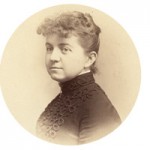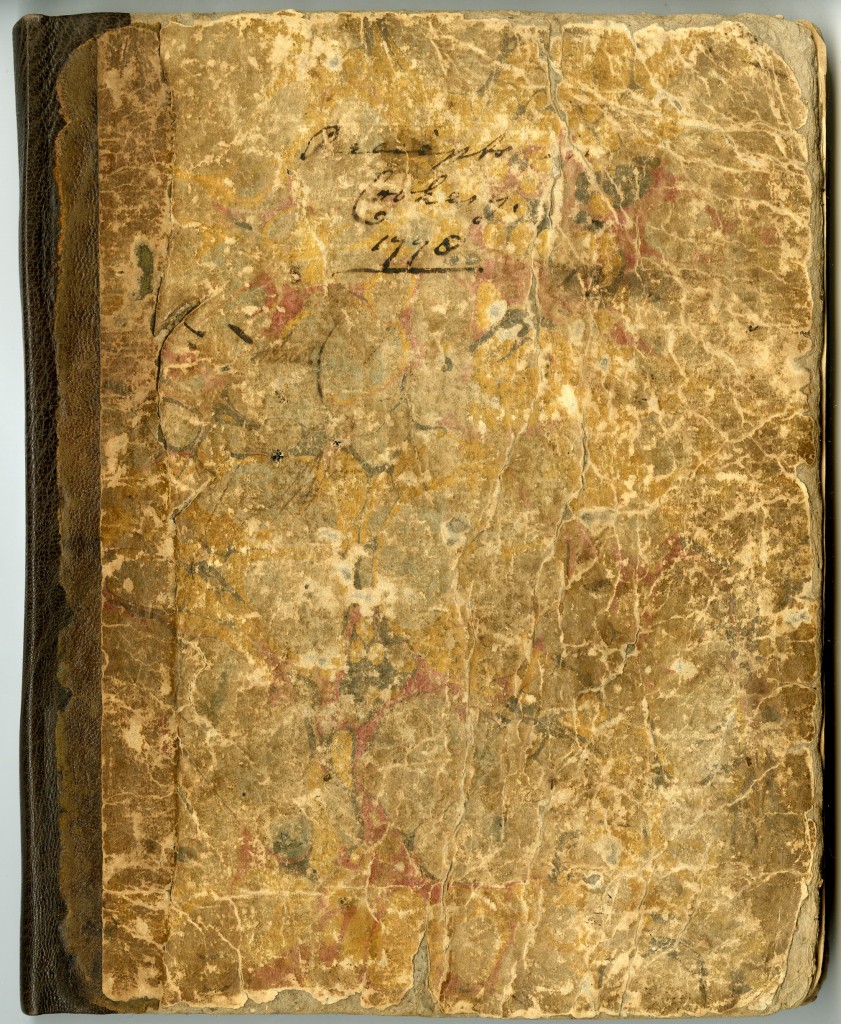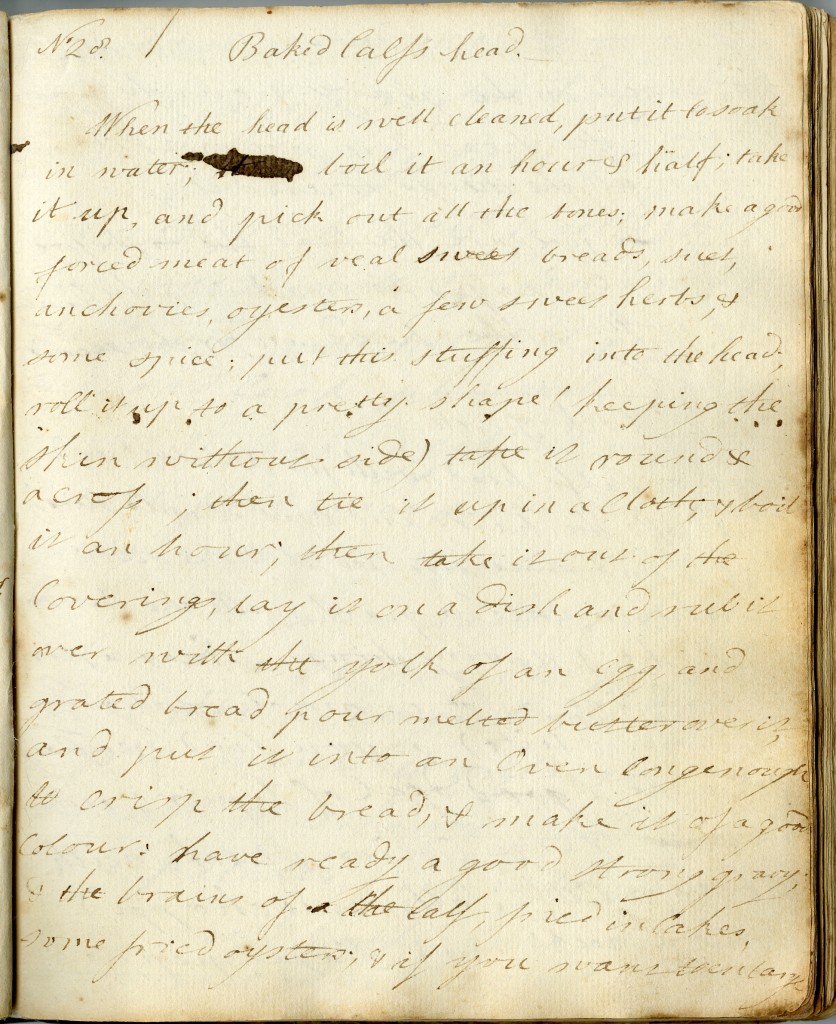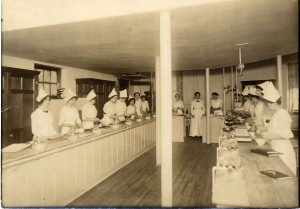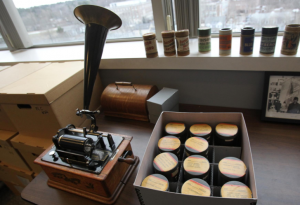Our own Professor of Psychology at Middlebury College Barbara Hofer writes about the modern day iConnected Parent, constantly in touch with their College-bound kids through cell phones and Skype…well, the archives recently turned up a connected parent, but from 82 years ago.
Here’s a letter from October 18, 1932. The mother of Charles Edward Stevenson, Jr., Class of 1936, writes to the Director of Admissions (scroll down for the full transcription):
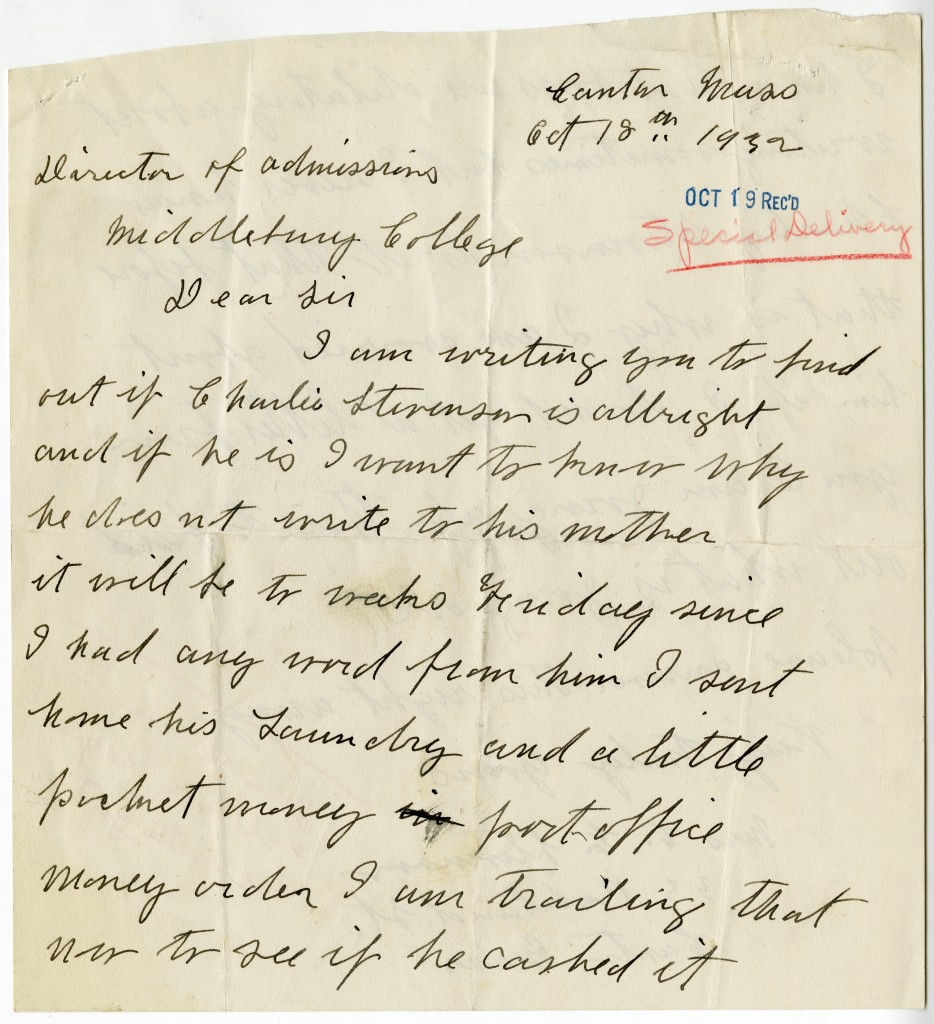
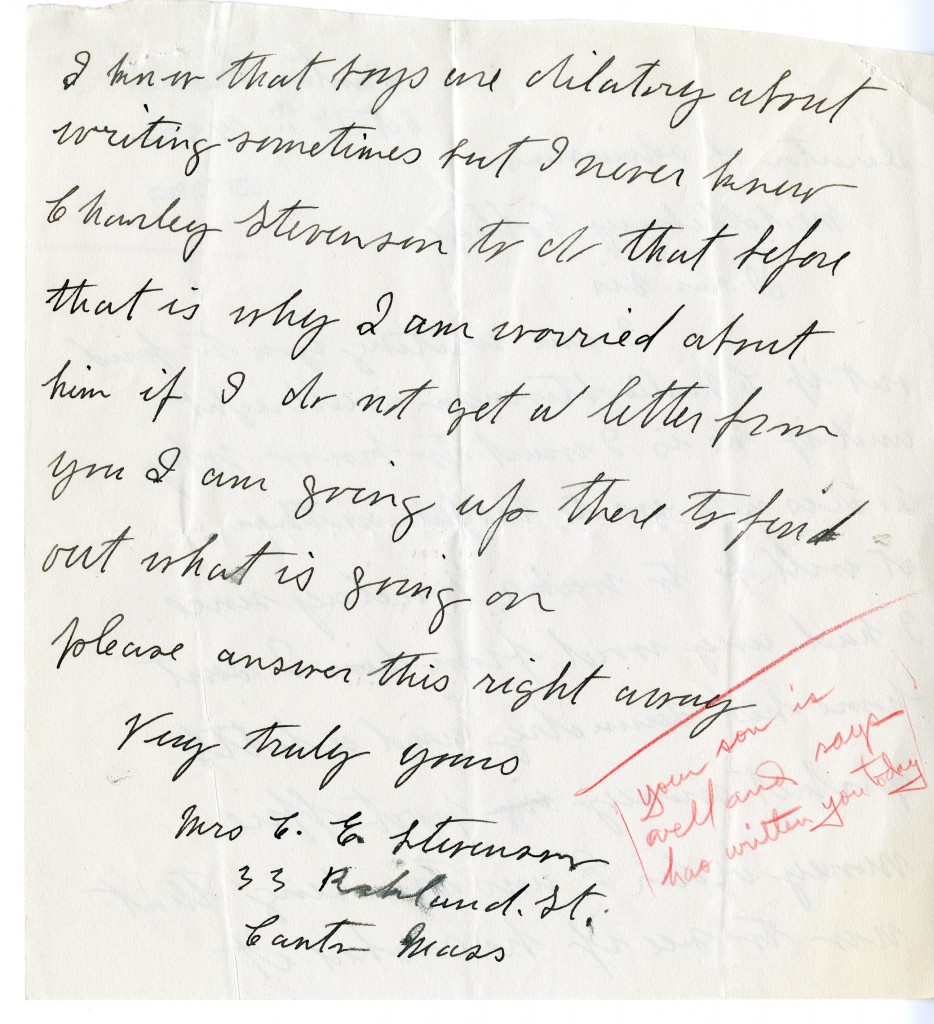
Dear Sir
I am writing you to find out if Charlie Stevenson is alright and if he is I want to know why he does not write his mother it will be to [sic] weeks Friday since I had any word from him I sent him his laundry and a little pocket money post office money order I am trailing that now to see if he cashed it. I know that boys are dilatory about writing sometimes but I never knew Charley Stevenson to do that before that is why I am worried about him if I do not get a letter from you I am going up there to find out what is going on.
Please answer right away
Very truly yours
Mrs C.E. Stevenson
One day later, Mrs. Stevenson received a typescript reply (again, transcribed below to help with the faded ink):
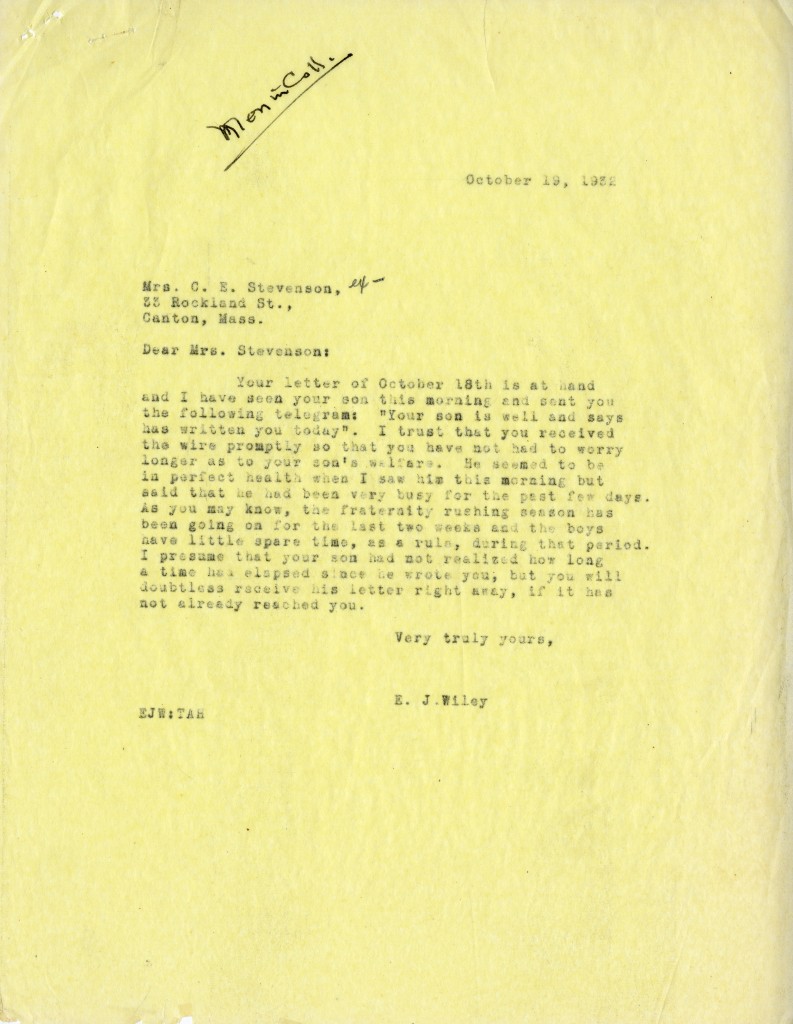
Dear Mrs. Stevenson,
Your letter of October 18th is at hand and I have seen your son this morning and sent you the following telegram: “Your son is well and says has written you today”. I trust that you received the wire promptly so that you have not had to worry longer as to your son’s welfare. He seemed to be in perfect health when I saw him this morning but said that he had been very busy for the last few days. As you know, the fraternity rushing has been going on for the last two weeks and the boys have little spare time, as a rule, during that period. I presume that your son had not realized how long a time has elapsed since he wrote you, but you will doubtless receive his letter right away, if it has not already reached you.
Very truly yours,
E.J. Wiley




